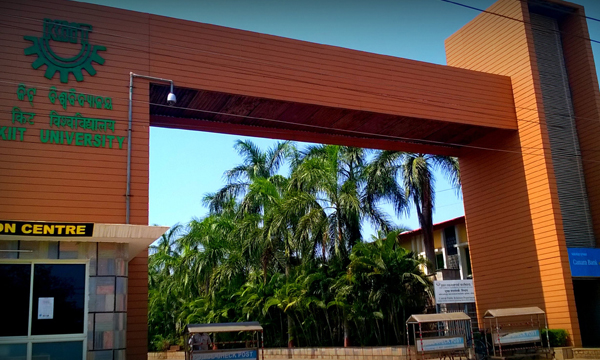About School of Civil Engineering
The School of Civil Engineering aims to meet the future needs of the construction industry and society by producing professional Civil Engineers competent in analyzing, designing and managing solutions for practical engineering problems. It imparts sound fundamentals at B.Tech. level, specialized subjects at M.Tech. level and provides high-quality research guidance at the PhD level. The teaching-learning process is seamlessly supported by excellent academic support facilities (laboratory, library etc.). The school is actively engaged in project and consultancy activities and disseminates research and project achievements through various publications. It has established collaborations in the areas of regular academic, research and consultancy activities with various organizations. The school has been able to build an effective institute-industry interaction and lays focus on entrepreneurship development amongst the students.
The B. Tech Program in Civil Engineering was launched on 1997 with an intake of 60 students per annum. Till 2003, the institute was affiliated with Utkal University. The affiliation was changed to Biju Pattnaik University of Technology in 2003, when all technical institutes of the state (ODISHA) were brought under a single technical University. Kalinga Institute of Industrial Technology (KIIT) was awarded Deemed-to-be-University status under Section 3 of the University Grants Commission (UGC) Act, 1956 in 2004. NBA has granted Tier-I accreditation (under Washington Accord) to the B.Tech Program in Civil Engineering offered by the School of Civil Engineering, Kalinga Institute of Industrial Technology (KIIT) Deemed-to-be University.

Listed below are the salient features:
-
- The School of Civil Engineering imparts cutting-edge skills through teaching.
- The well-qualified faculty members ensure understanding of fundamental concepts to lay a strong foundation.
- Students are trained in current technologies, analytical problem solving and product design skills to be employable in the industry.
- The pedagogy is designed such that students can connect theory and are motivated to apply with application and motivated to applying the same in furthering their careers.
- The School has strategically partnered with the industry to update its syllabus, introduce industry-based electives and facilitate students’ a internships in the industry for skill development.
- It has established a Centre of Excellence in collaboration with the industry for various research and training purposes.
- The value-added training and career augmentation services prepare students to meet the expectations of industry demands.
The state-of-the-art facilities of the School include adequate number of air conditioned classrooms, laboratories, conference hall, reading rooms and round the clock Library with Journals, e-resources, multilingual news papers, divergent magazines and around 15000 books. The library has access to a 11 large number of databases related to interdisciplinary subjects including the core subjects of science and technology.
Vision
To impart education and research in Civil Engineering, with particular emphasis on their application in the industry, infrastructure building, economic welfare, health, safety and commerce in a diverse society and to create scope for professional engineering licensure and practice.
Mission
-
-
To provide students with a broad and in-depth education in civil engineering fundamentals, applications, and design in order to prepare them for the practice of civil engineering at the professional level with the confidence and skill necessary to meet the technical and social challenges of the future
-
To prepare students for higher education or entrepreneurship
-
To encourage and facilitate students, to involve themselves in continuous learning, to build skills beyond the curriculum
-
To inculcate critical thinking and an open-ended problem-solving attitude to build up creative abilities and research spirit
-
To impart the essential skills of leadership, teamwork, communication and ethics so that they can interact and communicate effectively (written and/or oral) with others (e.g., supervisor, client and/or team)
-
To engage students with alumni, industry, government, and community partners through outreach activities in order to inculcate global perception
-
To engage students in creating innovative design solutions that include realistic constraints such as economic, environmental, social, political, ethical, health and safety, constructability, sustainability, and global considerations, and disseminating these designs at national and regional venues
-
To provide solutions and propose methodologies in the areas related to structural, geotechnical, water resources and environmental engineering
-
Leadership

Prof. Dillip Kumar Bera
Dean
Email – dean.civil@kiit.ac.in
dberafce@kiit.ac.in

Prof. Kshyana Prava Samal
Associate Dean (Academic)
kshyanaprava.samalfce@kiit.ac.in

Prof. Aparupa Pani
Associate Dean (Research)
aparupa.panifce@kiit.ac.in

Prof. P. K. Acharya
Program Head – M. Tech.
Email – prasanna.acharyafce@kiit.ac.in

